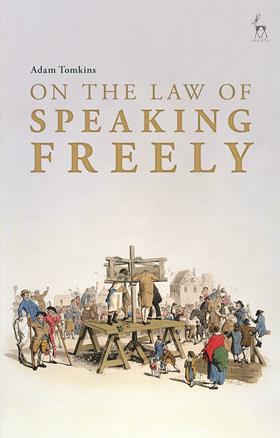On the Law of Speaking Freely
Adam Tomkins
£24.99, Bloomsbury
★★★★✩
What price free speech in a world of fake news, racial and religious hatred, violent protest and intolerance? This is a brilliant book that describes the history of restrictions on expression by voice, later by written word and now by electronic means. It observes that in this country, the legal concept of a right to free speech is relatively new. Tomkins quotes Geoffrey Robertson KC: ‘the British tradition of free speech is myth’. For centuries, books and publications had to be licensed and there was a whole array of laws to punish wrongdoers. The authorities, whether government or church, wanted to protect the people from error and falsehood and dreamt up different libel laws.

It was in America that free speech became an inalienable right. Framers of the First Amendment (Declaration of Rights) may have been influenced by the British jurist Blackstone, who wrote that the state itself could not censor or restrict the press (so a defamed person would have to take private action in the courts). Tomkins notes that the First Amendment is addressed to Congress, not individual states, as ‘Congress shall make no law… abridging the freedom of speech’.
The heroes of the struggle for free speech in Britain were people like John Stuart Mill. He wrote that ‘the only purpose for which power can be rightfully exercised over any member of a civilised community, against his will, is to prevent harm to others’.
David Pickup is a partner at Pickup & Scott Solicitors, Aylesbury































No comments yet